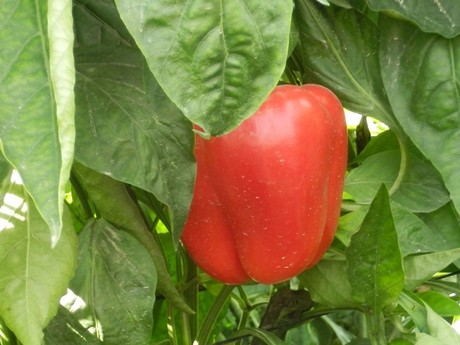 this year led to reduced pepper production in Israel. Increased competition from Dutch and Spanish growers has also made it a challenging year for Israeli growers.
this year led to reduced pepper production in Israel. Increased competition from Dutch and Spanish growers has also made it a challenging year for Israeli growers.“We had extreme weather conditions,” said Niva Ben Zion of Avniv. “Rain, hail and extremely low night temperatures starting in January affected peppers.” Though the quality of produce wasn't significantly affected, quantities were. Niva didn't have numbers regarding the dip in production, but she pointed to the fact that the date at which duties are imposed on shipments to the EU says a lot about the dip in exports. While duties are usually imposed around the second week of January, this year duties weren't imposed until February, when, presumably, exports finally reached levels comparable to those from mid-January in years past. Prices have also not been favourable this year.
“We have not seen an improvement in prices or demand for Israeli produce,” said Niva. “With enough supplies from Spain to cover supermarket programs, prices were relatively stable.” Those supplies also edged out Israeli peppers, with this year being the first time Niva can remember that German supermarkets didn't transition to Israeli produce for the second half of the season. An early start to the Dutch pepper season also didn't help.
“We're used to having a window of opportunity to be almost alone in the market during February and March, but we didn't have it at all this season,” said Niva. That was due to a combination of an extended Spanish season and an early Dutch season. That kind of competition has become the norm on the European market, which has made Israeli growers reconsider their growth.
“Competition and decreased market share provide no added value for Israeli growers,” noted Niva. “Production costs are rising, and with bad exchange rates, the returns to growers will soon not be enough to cover costs.” Exporters must find ways to cut costs or find more lucrative markets.
“We see more companies uniting to market together, because they understand that together they are stronger,” said Niva. “We've also seen a shift in focus to Russia, because that market is growing and has a huge demand for fresh produce.”





